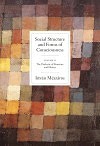Marxism
Ken Collier raises concerns about increased rent, transportation costs, etc., that surely must be addressed theoretically and pragmatically in any push for a guaranteed annual income. Political realities, however, do not mean that socialists should take the GAI off the table or abandon living-wage campaigns or any other struggle for social justice | more…

José Carlos Mariátegui is one of Latin America’s most profound but overlooked thinkers. A self-taught journalist, social scientist, and activist from Peru, he was the first to emphasize that those fighting for the revolutionary transformation of society must adapt classical Marxist theory to the particular conditions of Latin American. He also stressed that indigenous peoples must take an active, if not leading, role in any revolutionary struggle. | more…
Hans Koning died April 13 in his Connecticut home at the age of eighty-five. Monthly Review Press had the distinction of publishing three of his books. One of them, still a classic in many high schools, was Columbus: His Enterprise — Exploding the Myth, the first trade book to challenge the U.S. origin myth. That myth says that this nation was founded by brave white men fleeing oppression — not by genocide, enslaved labor, and imperialist expansion. Originally published in 1976, the U.S. Bicentennial year, it was reprinted in 1992, the five-hundredth anniversary of Columbus’s voyage, when it sold 30,000 copies. MR Press also published The Conquest of America: How the Indian Nations Lost Their Continent (1993) | more…
Michael A. Lebowitz, Build It Now: Socialism for the Twenty-First Century (New York: Monthly Review Press, 2006), 127 pages, paperback, $14.95.
This short work consists of two parts: analytical and programmatic. The analytical emphasis is upon the most important crime of capitalism: namely–its dependence upon alienation/dehumanization | more…

Revolutionary Doctors gives readers a first-hand account of Venezuela’s innovative and inspiring program of community healthcare, designed to serve—and largely carried out by—the poor themselves. Drawing on long-term participant observations as well as in-depth research, Brouwer tells the story of Venezuela’s Integral Community Medicine program, in which doctor-teachers move into the countryside and poor urban areas to recruit and train doctors from among peasants and workers. Such programs were first developed in Cuba, and Cuban medical personnel play a key role in Venezuela today as advisors and organizers. This internationalist model has been a great success—Cuba is a world leader in medicine and medical training—and Brouwer shows how the Venezuelans are now, with the aid of their Cuban counterparts, following suit. | more…
Seventeen years ago, in 1990, I began an essay with a poem of Bertolt Brecht. It was a poem about a man in Europe in the Middle Ages who put on “things that looked like wings,” climbed to the roof of a church, and tried to fly. He crashed, and the bishop who passed by said, “No one will ever fly.” | more…

In The Dialectic of Structure and History, Volume Two of Social Structure and Forms of Consciousness, István Mészáros brings the comprehension of our condition and the possibility of emancipatory social action beyond the highest point reached to date. Building on the indicatory flashes of conceptual lightning in the Grundrisse and other works of Karl Marx, Mészáros sets out the relations of structure and agency, individual and society, base and superstructure, nature and history, in a dialectical totality open to the future. | more…

Capital, as Marx once wrote, comes into the world “dripping from head to foot, from every pore, with blood and dirt.” He might well have been describing the long, grim history of rubber. From the early stages of primitive accumulation to the heights of the industrial revolution and beyond, rubber is one of a handful of commodities that has played a crucial role in shaping the modern world, and yet, as John Tully shows in this remarkable book, laboring people around the globe have every reason to regard it as “the devil’s milk.” All the advancements made possible by rubber—industrial machinery, telegraph technology, medical equipment, countless consumer goods—have occurred against a backdrop of seemingly endless exploitation, conquest, slavery, and war. But Tully is quick to remind us that the vast terrain of rubber production has always been a site of struggle, and that the oppressed who toil closest to “the devil’s milk” in all its forms have never accepted their immiseration without a fight. | more…

Stephen Jay Gould was not only a leading paleontologist and evolutionary theorist, he was also a humanist with an enduring interest in the history and philosophy of science. The extraordinary range of Gould’s work was underpinned by a richly nuanced and deeply insightful worldview. Richard York and Brett Clark engage Gould’s science and humanism to illustrate and develop the intellectual power of Gould’s worldview, particularly with regard to the philosophy of science. They demonstrate how the Gouldian perspective sheds light on many of the key debates occurring not only in the natural sciences, but in the social sciences as well. They engage the themes that unified Gould’s work and drove his inquires throughout his intellectual career, such as the nature of history, both natural and social, particularly the profound importance of contingency and the uneven tempo of change. They also assess Gould’s views on structuralism, highlighting the importance of the dialectical interaction of structural forces with everyday demands for function, and his views on the hierarchical ordering of causal forces, with some forces operating at large scales and/or over long spans of time, while others are operating on small scales and/or occur frequently or rapidly. | more…
As authoritatively stated in an editorial in Nature, vol. 436, issue 7049 (July 2005), “Cuba has developed a considerable [scientific] research capability—perhaps more so than any other developing country outside of Southeast Asia.” Cuba has been especially successful in establishing a biotechnology industry that has effectively introduced drugs and vaccines of its own, along with a nascent pharmaceutical industry that has achieved considerable success in exports. Its agriculture and health sectors have been strong beneficiaries of its scientific research. As Nature observed: “It is worth asking how Cuba did it, and what lessons other countries might draw from it.” Indeed, the Cuban case is all the more surprising since it is not only a poor country, but one that has been confronted for decades by a ruthless embargo imposed by the United States, which has been extended to scientific knowledge. Moreover, much of Cuba’s scientific progress has occurred in the decade and a half since the fall of the Soviet Union, which previously had aided it economically and technologically | more…

In his new extensively revised and expanded edition of this book, Samir Amin suggests new approaches to Marxian analysis of the crisis of the late capitalist system of generalized, financialized and globalized oligopolies following on the financial collapse of 2008. Considering that Marx’s Capital, written before the emergence of imperialism as a decisive factor in capitalist accumulation, could provide no explanation for the persistent “underdevelopment” of the countries of the “global South,” Amin advances several important theoretical concepts extending traditional Marxian views of capitalist evolution. | more…
The signs point to the fact that the symbol of the Cuban revolution is reaching the end of his road. Even if it does not formally mark the definitive end of almost fifty years of undisputed leadership at the helm of the island republic, Fidel Castro’s handing over of power to brother Raul in late July is surely a precursor to what will happen sooner rather than later | more…





